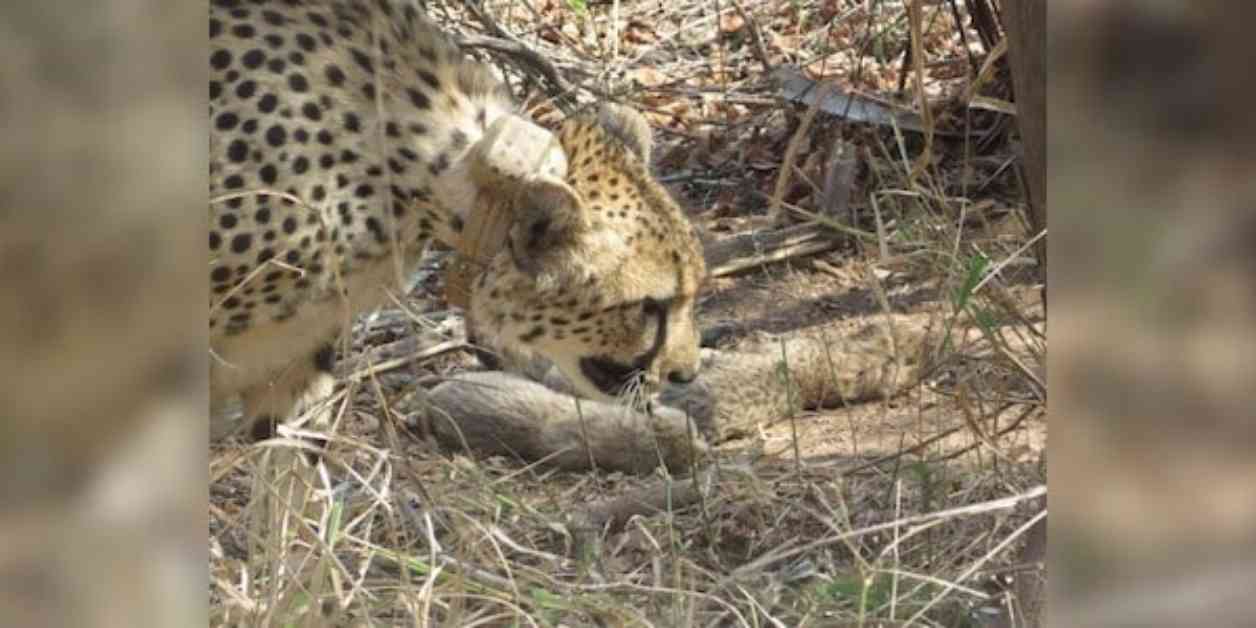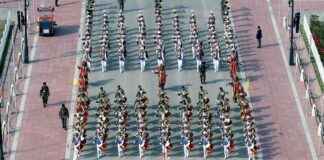Celebrating the Successful Reintroduction of Cheetahs at Wildlife Hospital
In a momentous occasion, a wildlife hospital was inaugurated in Madhya Pradesh’s Sheopur district to commemorate the second anniversary of the cheetahs’ arrival at the Kuno National Park (KNP) as part of an ambitious reintroduction program. The State Forest Minister, Ramniwas Rawat, unveiled the hospital for cheetahs in the Palpur area, which was constructed at a cost of Rs 2.29 crore.
The minister highlighted the success of the project by mentioning that 12 cheetah cubs were born on Indian soil over the last two years, showcasing the positive impact of the reintroduction program. However, he also acknowledged the setbacks faced, with eight adult cheetahs and five cubs losing their lives during the same period. As a result, all surviving cheetahs are currently housed in enclosures within the national park.
The Indian government’s aim to revive the cheetah population in the country holds significant importance, especially since the species, known as the fastest land animal, went extinct in the wild decades ago. Prime Minister Narendra Modi marked his birthday in September 2022 by releasing eight cheetahs imported from Namibia, comprising five females and three males, into enclosures at KNP. Subsequently, in February 2023, an additional 12 cheetahs were translocated to the park from South Africa, further bolstering the population.
The newly-built hospital boasts state-of-the-art facilities, including an operation theatre, a digital microscope, sonography equipment, and more, providing essential medical care for the cheetahs. Minister Rawat commended the project for garnering global recognition for Sheopur district and attributed its success to the dedicated efforts of KNP employees and local communities. He also praised the pivotal role played by ‘Cheetah Mitra,’ a group of volunteers actively raising awareness about the project, by felicitating some volunteers and engaging in discussions with them. Additionally, Rawat released the project’s annual report and a documentary showcasing the cheetahs’ journey.
Principal Chief Conservator of Forests, V N Ambade, shared that the area of KNP has been expanded to 1,777 sq km from the earlier 1,235 sq km, demonstrating the commitment to providing a suitable habitat for the reintroduced cheetahs to thrive in their natural environment.
Challenges and Triumphs in Cheetah Reintroduction
The reintroduction of cheetahs into the wild comes with its own set of challenges and triumphs. While the birth of 12 cheetah cubs on Indian soil is a cause for celebration, the loss of eight adult cheetahs and five cubs serves as a sobering reminder of the fragility of the species. It is essential to address the factors contributing to these losses and implement measures to ensure the long-term survival of the cheetah population.
The successful translocation of cheetahs from Namibia and South Africa reflects a collaborative effort between governments, conservation organizations, and local communities to safeguard the future of this iconic species. The release of cheetahs into enclosures at KNP signifies a significant milestone in the reintroduction program, offering hope for the revival of the cheetah population in India.
Impact on Conservation Efforts and Biodiversity
The reintroduction of cheetahs at Kuno National Park has far-reaching implications for conservation efforts and biodiversity in the region. By restoring the presence of cheetahs in their natural habitat, the project aims to promote ecological balance and preserve the rich diversity of flora and fauna in the area. The establishment of a wildlife hospital underscores the commitment to providing comprehensive care for the reintroduced cheetahs and ensuring their well-being in the long run.
The collaboration between government agencies, local communities, and conservation groups highlights the importance of collective action in safeguarding endangered species and restoring fragile ecosystems. The success of the cheetah reintroduction program serves as a beacon of hope for other conservation initiatives and underscores the significance of preserving biodiversity for future generations.
In conclusion, the second anniversary of the cheetah reintroduction at Kuno National Park marks a significant milestone in wildlife conservation efforts in India. The establishment of a dedicated wildlife hospital, the successful translocation of cheetahs, and the ongoing efforts to protect and nurture the cheetah population reflect a shared commitment to safeguarding the natural heritage of the country. With continued support and collaboration, the future looks promising for the cheetahs and their role in maintaining the delicate balance of ecosystems in the region.




















